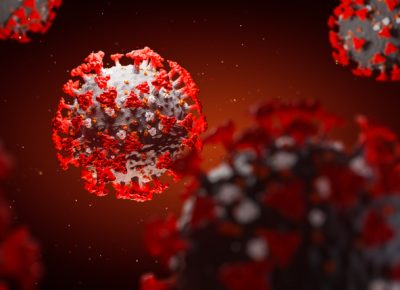Author Archives: vlm
Resuming fertility treatment after COVID-19

One of the most difficult things for our fertility specialist and our patients who need fertility treatment during the corona virus has been the need to put a hold on fertility testing and treatment while the pandemic peaked in New Jersey.
Now that the COVID-19 pandemic is starting to wane, we will be starting up fertility treatments once again. There are some changes in hours and the services we will provide until the situation allows us to fully reopen. This is to keep both our patients and staff as safe as possible.
Here is what you need to know about about what is going on if you are patient of Dr. Derman at Princeton IVF:
-
We are resuming our morning office hours but with a different schedule. All appointments will be scheduled weekdays between 8 and 9:30 and by appointment only. If you plan on coming in, please let us know in advance so we can avoid crowding and continue to enforce social distancing practices.
-
We will resume medication, workup and IUI cycles.
-
We can now resume IVF cycles now that our IVF lab (Sincera Reproductive Medicine-Abington) reopened its facility. (Updated May 15)
-
You must wear a mask when you come to Lawrenceville and will be screened for signs of coronavirus when you show up.
-
Consults with the doctor will be available either in person or by telemedicine and can be scheduled by calling our office.
-
Please use the main phone number to the office to reach us 609-896-0777 instead of the fertility line at 609-896-4984 as messages left at that line may take longer to reach us. You can also send us a message by clicking here.
-
For non-emergent calls, you may also send us a secure portal message or email us at lbock@lma-llc.com.
THANK YOU FOR YOUR PATIENCE DURING THIS TRYING TIME FOR ALL OF US.
What You Need to Know About the COVID-19 Pandemic

What has changed at the office?
What about Telemedicine?
What can I expect at the hospital?
If I get coronavirus, is it a real danger to me or my baby?
Will you test me for coronavirus?
COVID-19 and Pregnancy – What You Should Know

Are you pregnant and concerned about the COVID-19 outbreak? The global pandemic of COVID-19, also known as the Corona or Wuhan virus, is center stage in the news and a major concern for most of us. If you are pregnant or trying to get pregnant, you are likely to have even more questions. Here are the answers to some of them.
Here is what we know as of 3/15/20 about the virus and fertility and pregnancy related issues.
Please note that the situation is fluid, and as we learn more about the disease these “facts” could change.
WHAT IS COVID-19?
It is a new variant of a virus that has been around for many years. It belongs to a group of viruses called coronaviruses because of their shape. This particular strain was first discovered, and likely to have been transmitted from animals to humans in the city of Wuhan, China.
WHY IS THERE A CONCERN OF ABOUT THIS PARTICULAR CORONAVIRUS?
COVID-19 like similar viruses is very contagious, much like the common cold or the flu, and unlike viruses such as HIV that are relatively difficult to spread. Based on the experience so far in Italy and China, the virus is also is likely to have a higher mortality rate than regular influenza. It is also a new virus, so none of us have immunity to it yet, and vaccines take time to develop. This is a bad combination. Still, since testing is not widespread and we don’t know how many people have it and are not sick, it is difficult to know for sure if it is really more dangerous than the common flu.
I AM PREGNANT. SHOULD I BE CONCERNED ABOUT MY OWN HEALTH?
Because of changes in the immune system during pregnancy, pregnant women are considered at higher risk for some infections. There is no evidence at this time that COVID-19 is more of a threat to pregnant women that to others.
WILL THE CORONA VIRUS AFFECT MY UNBORN BABY?
As of now, there have been no reports of transmission from mother to baby in utero. However, we do know that high maternal fevers are not good for your baby. If you have or think you have a corona virus, as your doctor would advise you for the the flu, it is important to keep your fever down with Tylenol and keep well hydrated. In the Zika virus epidemic a few years ago, birth defects were the major concern but so far there is no sign of this.
CAN I BREASTFEED IF I MIGHT HAVE CORONA VIRUS?
There have been no reports of the virus being transmitted by breast milk. However, nursing involves intimate physical contact between mother and child, and could potentially transmit the virus through skin contact and air droplets.
WHEN SHOULD I GO TO THE DOCTOR OR EMERGENCY ROOM?
The corona virus is highly contagious, and while it may not be a major threat to your own health, it can be deadly to the elderly and those with serious illnesses. You only want to go the emergency room if you are seriously ill with shortness of breath and/or high fevers. Otherwise, they will likely send you home and tell you to rest, drink plenty of fluids and take medications for the symptoms. Antiviral medications are considered experimental and generally reserved for critically ill patients.
I AM CONCERNED I MAY HAVE THE CORONA VIRUS WHAT SHOULD I DO?
Stay home and avoid contact with others. The more you are in contact with others, the more likely you are to spread the epidemic. You should plan on being at home for 2 weeks.
Take your temperatures. If you are running high fevers, 101 or higher, or have breathing issues, call your doctor and they will decide if you need to go to the hospital.
I AM SEEING THE DOCTORS AND MIDWIVES AND DELAWARE VALLEY. WILL THERE BE ANY ISSUES WITH MY APPOINTMENT?
We have not cancelled any appointments at this time but the situation is fluid and could change
You will be screened when you present to our waiting room and will not be allowed in if you are considered too high risk for Coronavirus infection in order to protect our other patients and staff. If you are running a fever and have a cough, please do not come to our office.
We are still available to you by phone. Please call us at 609-896-0777 and we can decide where and when it is best to see you.
Please do not bring your family with you to your visit until the crisis has ended. Except in very unusual circumstances, your spouse/partner will not be allowed in.
WILL THE CORONA VIRUS AFFECT MY FERTILITY?
At this time, there is no evidence that COVID-19 will affect your ability to have children. For men, high fevers have been associated with lower sperm counts, so it is important to keep the fever down with Tylenol or ibuprofen.
Birth and Babies Event – POSTPONED

EVENT IS POSTPONED UNTIL FURTHER NOTICE DUE TO COVID-19
Join us for an informal education session about third trimester changes, labor, delivery, and the newborn period! Bring all of your questions about what will happen after you’ve reached 37 weeks.
You will be joined by one or more of our providers, as well as other expecting families.
The session will begin at:
6:00pm Tuesday, March 24th
Light refreshments will be served.
Complete the Form Below to RSVP for this Event
Tips for a Hydrated Pregnancy

The Summer months and even early Fall can be extremely hot. Time for all women, but especially if you’re pregnant, to pay close attention to staying hydrated.
Hydration is always important for bodily functions. But during pregnancy fluids are even more precious than usual. Your pregnant body needs water to form amniotic fluid, produce extra blood volume, build new tissue, carry nutrients, help indigestion and flush out your wastes and toxins.
What does drinking lots of fluids do for you during pregnancy?
Drinking lots of fluids works wonders by helping to ease potential constipation and possible hemorrhoids. It can soften dry skin. It helps to reduce edema. And increasing fluid intake decreases your risk of both urinary tract infections and preterm labor.
Pregnant women should try to drink 10 cups (2.3 liters) of fluids each day, according to the Mayo Clinic. If temperatures are soaring or you’ve been exercising, you probably need even more.
Does the thought of drinking all that water make you grimace?
You can accumulate your fluid intake with other fluids like milk, juice, soup, sparkling water, decaf tea and fruits and veggies. (Five servings of produce = two servings of fluid.)
Always be aware of your body.
Generally, if you’re drinking enough fluids so that you rarely feel thirsty and your urine is colorless or light yellow, you’re probably doing a good job at staying hydrated.
To help you stay hydrated during the day, here are five tips for drinking water while pregnant.
- Drink 8 Cups of Water Per Day
- Take A Few Sips of Water Before Bed
- Don’t Wait Until You Feel Thirsty to Drink
- Find the Right Temperature When Drinking Water
Eat Hydrating Foods
Here’s a List of delicious Hydrating Foods that you can easily work into your daily diet.
- Watermelon – 92% Water Content
- Strawberries – 91% Water Content
- Cucumbers – 95% Water Content
- Lettuce – 95% Water Content
- Cantaloupe – 90% Water Content
- Yogurt – 85% Water Content
- Whole Fruit Popsicles – 94% Water Content
Are you pregnant? Considering Pregnancy? Having difficulty getting pregnant?
Our expert OB/GYNs and Nurse Mid-Wives are dedicated to offering compassionate and comprehensive prenatal care. To schedule a consultation, contact us HERE.
IUD – What You Need to Know About This Modern-Day Contraception

IUDs are 99 percent effective in protecting against pregnancy compared to 85 percent for condoms and 91 percent for the pill. You’re busy. You’re birth control is a priority but it’s not something you want to have think about constantly. Fortunately, at Delaware Valley ObGyn our providers can offer you a variety of contraception options that fit into your lifestyle and have pregnancy-prevention staying power. One of those options includes Intrauterine devices or IUDs.
What is an IUD?
IUDs are long-acting reversible contraceptives. This means they prevent pregnancy for years, but they can be removed to restore fertility.
IUDs are 99 percent effective in protecting against pregnancy compared to 85 percent for condoms and 91 percent for the pill. Basically, you benefit from having a highly effective form of birth control that you barely need to think about.
There are two categories of IUDs: hormonal and non-hormonal. There is one non-hormonal IUD – the ParaGard. There are four hormonal IUDs. After a review of your health history and lifestyle, you and your provider will determine which IUD is the best type for you.
Those using IUDs should be conscious of the fact that IUD’s do not protect against HIV or other sexually transmitted infections (STIs).
Are IUDs painful?
All IUDs have the same basic look—plastic and T-shaped—and they’re all inserted through the cervix into your uterus. There are small strings on the end that let you know it is in place properly.
Insertion is different for everyone. For some women, especially those who’ve had children, it’s a minor annoyance. For others it can be painful, particularly if the doctor needs to open the cervix more for insertion.
The good news is that it is over in a few minutes and the whole appointment should not take more than 30-45 minutes. The bad news is that you might experience cramping or spotting for three to six months after insertion. Removing an IUD usually requires a short visit to our office.
Here’s what you need to know about the five different IUDs available right now:
How it works: Paragard is the only brand of non-hormonal IUD in the U.S. Wrapped in thin copper, it causes an inflammatory response in your body which prevents sperm from getting through your cervix.
You should consider this: If you want to avoid synthetic hormones, women who have normal to light flow and who want the longest option.
Side effects: Increased menstrual bleeding, increased cramps, random spotting and anemia.
How long it lasts: According to ParaGard’s website, the device lasts for 10 years.
Don’t Consider This: If your cramps and bleeding are already bad, then a non-hormonal IUD probably isn’t for you.
How it works: Mirena releases a synthetic form of progesterone that thins out your uterine lining and can prevent your ovaries from releasing an egg. All of which prevents any rogue sperm from latching onto an egg and fertilizing it.
You should consider this: If you experience heavy menstrual periods.
Side effects: Significantly lighter period or no period at all, breakthrough bleeding, ovarian cysts, nausea and mood changes.
How long it lasts: According to Mirena’s website, the device lasts for five years.
Don’t consider This: If you’re prone to ovarian cysts, if react badly to progestin or if you’re hesitant about not having a period at all.
Liletta
How it works: Liletta works exactly like the Mirena, except it uses slightly less amounts of hormones and the amount decreases a little each year. However, this decrease does not hinder effectiveness.
You should consider this: If you’re shopping for an option that is lower in cost.
Side effects: Ovarian cysts, lighter period or no period at all, breakthrough bleeding, nausea and mood changes.
How long it lasts: Four years, according to the Food and Drug Administration (FDA).
Don’t consider this: If you react badly to synthetic progesterone or are prone to ovarian cysts.
Kyleena
How it works: Kyleena works just like Mirena and Liletta but contains slightly less of the hormone—the second lowest dose you can find in a hormonal IUD.
You should consider this: If you still want ample protection but also want a regular period.
Side effects: Nausea, breakthrough bleeding, mood changes, and ovarian cysts. It can also lessen or stop your period.
How long does it last: According to Kyleena’s website, five years.
Don’t consider this: If you react badly to synthetic hormones.
Skyla
How it works: Skyla works just like all four previously mentioned IUDs. It releases the smallest amount of hormones and is the smallest in size. This makes it easier to insert.
You should consider this: If you haven’t had children or have a tight cervix or those who want to keep getting periods while they’re protected
Side effects: Lighter bleeding, cysts, nausea and mood swings.
How long does it last: According to Skyla’s website; three years.
Don’t consider this: If you like protection for more than three years.
Interested in learning more about IUDs or other forms of contraception, schedule an appointment with one of our providers online HERE or call us at 609-896-0777.
Pregnancy Do’s and Don’ts

Pregnancy is such an exciting time in your life. Yet it can be filled with questions and anxiety. The reality is your actions could affect your pregnancy and your fetus. Additionally, there’s advice everywhere from experts, friends and relatives as to what you should and shouldn’t do when you’re expecting.
Here are a few evidence-based recommendations from the American College of Obstetricians and Gynecologists.
Alcohol
High alcohol intake in pregnancy has been associated with fetal malformations and developmental delay. Although data suggests that consumption of small amounts of alcohol during pregnancy does not appear to be harmful to the fetus, the exact threshold from safe to unsafe is unknown, so alcohol should be avoided.
Artificial Sweeteners
Artificial sweeteners can be used in pregnancy. Data regarding saccharin is conflicting. Low consumption is likely safe.
Caffeine
When you’re pregnant you can safely drink an 8 oz. cup of coffee or 12 oz soda daily. Exact amounts of caffeine vary, but it should be kept low-to-moderate.
Exercise and Bedrest
We encourage you to exercise regularly. If you are experiencing an uncomplicated pregnancy, we recommend that you try to achieve an average of 20–30 minutes of moderate-intensity exercise 4-5 times per week.
Fish Consumption
You should try to consume 2-3 servings of low-mercury and high-DHA fish a week. Sushi that is prepared in a clean and reputable establishment is unlikely to pose a risk.
Hair Dyes
Although data is limited on the topic, hair dye absorption is minimal and presumed to be safe during pregnancy.
Hot Tubs and Swimming
Studies show that increasing your body temperature increases your risk for miscarriage and birth defects. You should probably avoid hot tub use in the first trimester of your pregnancy. Swimming pool use is fine throughout your pregnancy.
Insect Repellents
Topical insect repellents (including DEET) can be used in pregnancy and should be used in areas with high risk for insect-borne illnesses. As a result of the risk of mosquito-borne illnesses, including West Nile and Zika virus, these insect repellents are recommended in high-risk areas. In regard to travel destinations, you should be aware of the potential infection exposures (including Zika virus) as well as available medical care at each destination.
Marijuana
Marijuana use is not known to be associated with any adverse outcomes in pregnancy. However, data regarding long-term neurodevelopmental outcomes are lacking; therefore, we recommend against marijuana usage during your pregnancy.
Nutrition and Weight Gain
The National Academy of Medicine recommends that you eat a healthy, well-balanced diet, and that you increase your caloric intake by a small amount (350-450 calories / day). However, these recommendations as well as the baseline caloric requirements are highly dependent on your activity level, height, weight, and metabolism history.
Generally, your diet should include plenty of fruits and vegetables, whole grains, dairy, and a variety of proteins. A good nutrition resource for pregnant women is this website run by the U.S. Department of Agriculture: www.choosemyplate.gov.
Oral Health
You should continue good oral health and routine dental procedures including cleanings, fillings, extractions, root canals, etc.
Other Foods
- Avoid raw and undercooked or uncooked meat.
- Wash vegetables and fruit before eating them.
- Avoid unpasteurized dairy products.
- Unheated deli meats could also potentially increase the risk of Listeria, but the risk in recent years is uncertain. Avoid foods that are being recalled for possible Listeria contamination.
Prenatal Vitamins
Prenatal vitamins are designed to meet the daily mineral and vitamin (micronutrient) requirements of most pregnant women. However, except for folic acid and possibly vitamin D and iron, it is unknown whether meeting recommended dietary allowances improves outcomes or that failing to meet these recommended allowances worsens outcomes. Additionally, for women with well-balanced, nutritious diets that meet the recommended allowances, supplementation is likely not required. If supplementation is required, there is no known best formulation. A simple multivitamin will normally suffice, including nonprescription vitamins.
Seat Belts
You should continue to use three-point seatbelts when you travel in an automobile. The lap belt should be placed across the hips and below the uterus. Although there is potential for injury from a seatbelt, the risk is low and, because seatbelts significantly reduce the risk of major injuries from collisions, the overall effect is beneficial. Do not disable the airbags.
Sexual Intercourse
If you’re not experiencing bleeding, placenta previa at greater than 20 weeks of gestation, or ruptured membranes, you should be able to enjoy intimacy with your partner.
Sleeping Position
There is conflicting data about sleeping on your back and stillbirth. You can sleep on your side but know that side-sleeping does not prevent stillbirth.
Smoking, Nicotine, and Vaping
You should not smoke cigarettes during pregnancy. If you are unable to quit entirely, you should reduce it as much as possible. Since vaping devices still contain nicotine, the harm to pregnancy and baby is still possible, even beyond addiction. Consequences include but are not limited to preterm birth and low birth weight, common causes for infant death. Nicotine replacement (with patches or gum) is appropriate as part of a smoking cessation strategy.
Travel
Airline travel is safe in pregnancy. Pregnant women should be familiar with the infection exposures and available medical care for each specific destination. We won’t tell you not to travel, but you should weigh the balance of the benefit of the trip with the potential of a complication during travel.
Prenatal Open House

Join Dr. Pierce and Ursula Miguel, CNM
Delaware Valley OB/GYN and Infertility Group
Refreshments will be served!
Dr. Pierce and Ursula Miguel will host a FREE, informal discussion on preconception and parental issues.
WHEN: April 15, 2019 6-7pm
WHERE: Del Val OB/GYN
300B Princeton-Hightstown Rd
Princeton, NJ
RSVP: UMIGUEL@LMA-LLC.COM





